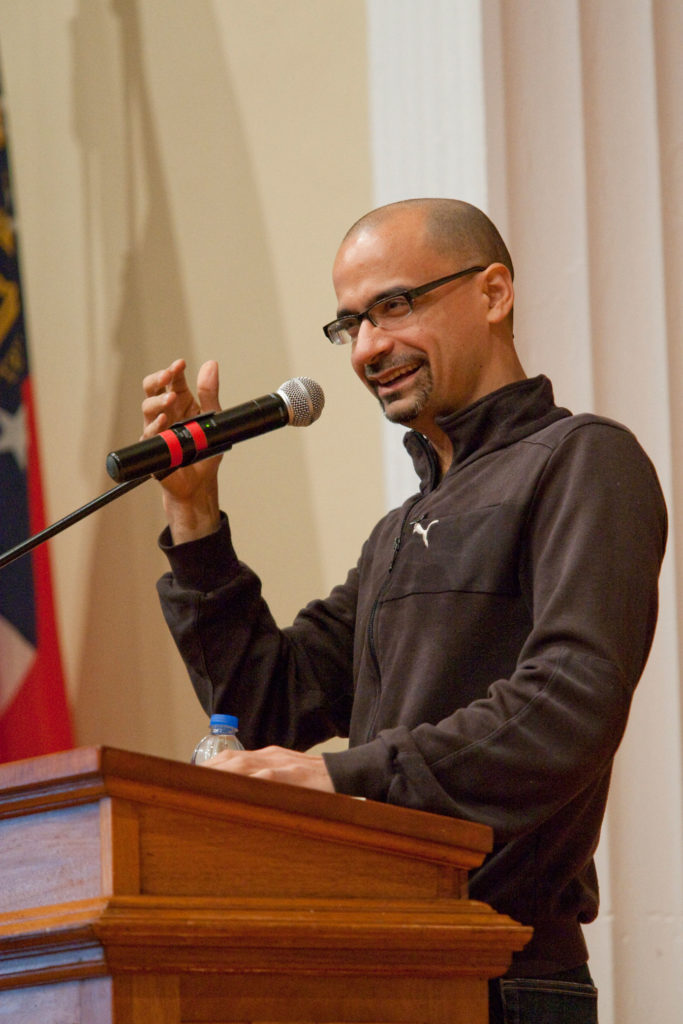Drawing from some of his most pivotal beliefs about art and life, Junot Díaz, the Pulitzer Prize-winning author of The Brief, Wondrous Life of Oscar Wao, urged students to expose themselves to art, even if it makes them uncomfortable.
Wearing jeans, a T-shirt and jacket, Díaz delivered two readings and fielded audience questions March 30 in a talk that spanned art’s relationship to capitalism, racial identity and why he writes.
“Most schools have been gutted of funding, and the first place to go is often the art program, which means that most young people don’t even have an idea that one of the aspects of art is that art-not always, but usually-has a transgressive element in it,” he said. “In some ways, art is a metaphor for all that we call human. Whether your parents are watching after you or not-whether you come from a conservative world or you come from a fairly liberal world, it doesn’t make a difference. Life presses on you with the same weight. You are going to encounter life in all its full dimensions. And art is a way that we encounter life through metaphor, whether it’s through a dance, whether it’s through sculpture, whether it’s through a story. No matter how much you want to control life or the world, it is upon you and its transgressive elements, the ones that art attempts to capture, are upon you.”
A Dominican Republic native, Díaz immigrated to New Jersey in 1974 at a time when few minorities held high-level jobs or commanded media attention.
“Most cultures have this tradition in which you can identify a monster because it doesn’t have a reflection in a mirror,” he said. “Well, I grew up in a world where every time I looked in a mirror-whether it was the mirror of my classes, the books on the shelves, the mirror of the TV or politicians-I did not see my reflection at all. It’s not that monsters don’t have reflections, but that if you want young people to feel monstrous, give them a world where nothing in it reflects them.
“I guess why I write has to do with this message that my desires are that I want to, before I die, have left a mirror or two so that if there is some young person that’s like me somewhere, they can feel-at least in the moments when they encounter my work-they can feel that they are reflected back at themselves and feel a little less monstrous than I do.”
